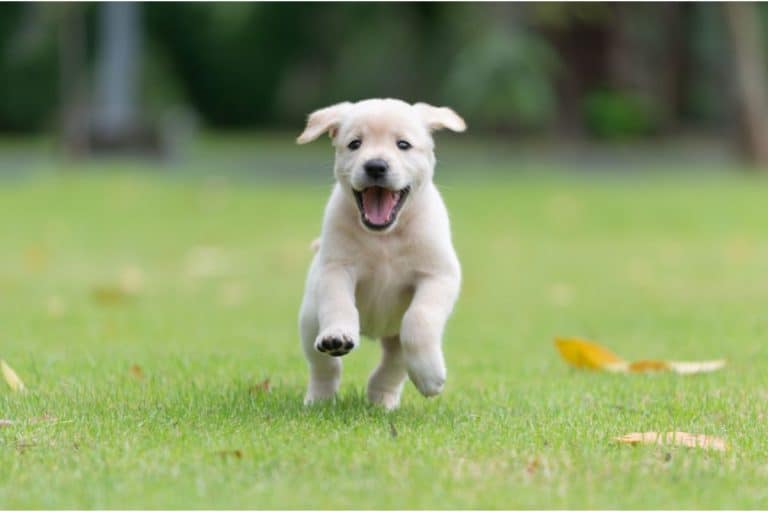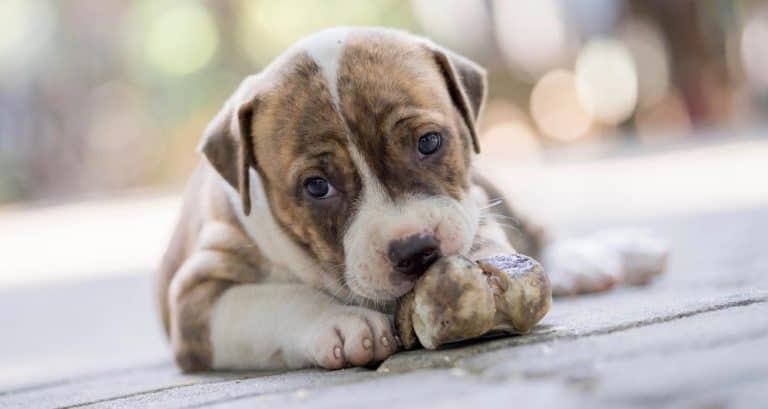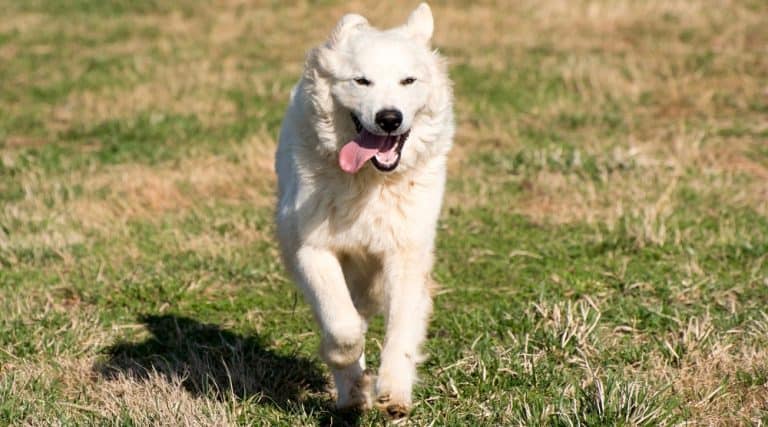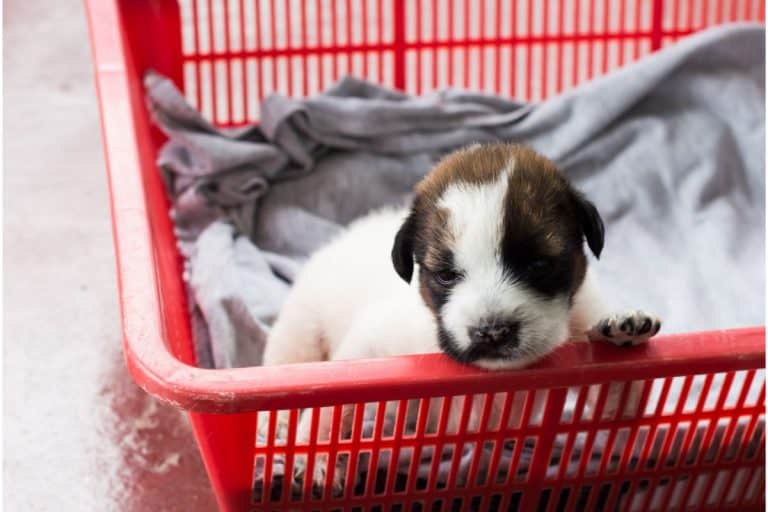Can a Dog Eat Chicken Noodle Soup (Homemade or Canned)?
When we feel a little under the weather or have an upset stomach, a common home remedy we find ourselves reaching for is chicken noodle soup. It is warming, comforting, and easy to digest, not to mention it is brimming with vitamins and nutrients that can aid our recovery.
Above everything else, though, chicken noodle soup is simply delicious, so it makes sense that we would want to share a taste with our furry friends, especially when they suffer from an upset stomach.
While there is a lot of debate around whether or not we should be feeding our dogs food made for humans, generally speaking, chicken noodle soup can be fine to feed to your dog, provided that it has been made specifically with dogs in mind.
However, there are some important caveats and ingredients to avoid to keep your dog healthy and safe while tasting this classic, healing soup.
While it is always best to stick to feeding your pup high-quality food designed specifically for dogs, this article will help you give your four-legged friend a taste of our favorite comfort food safely.
Ingredients To Avoid
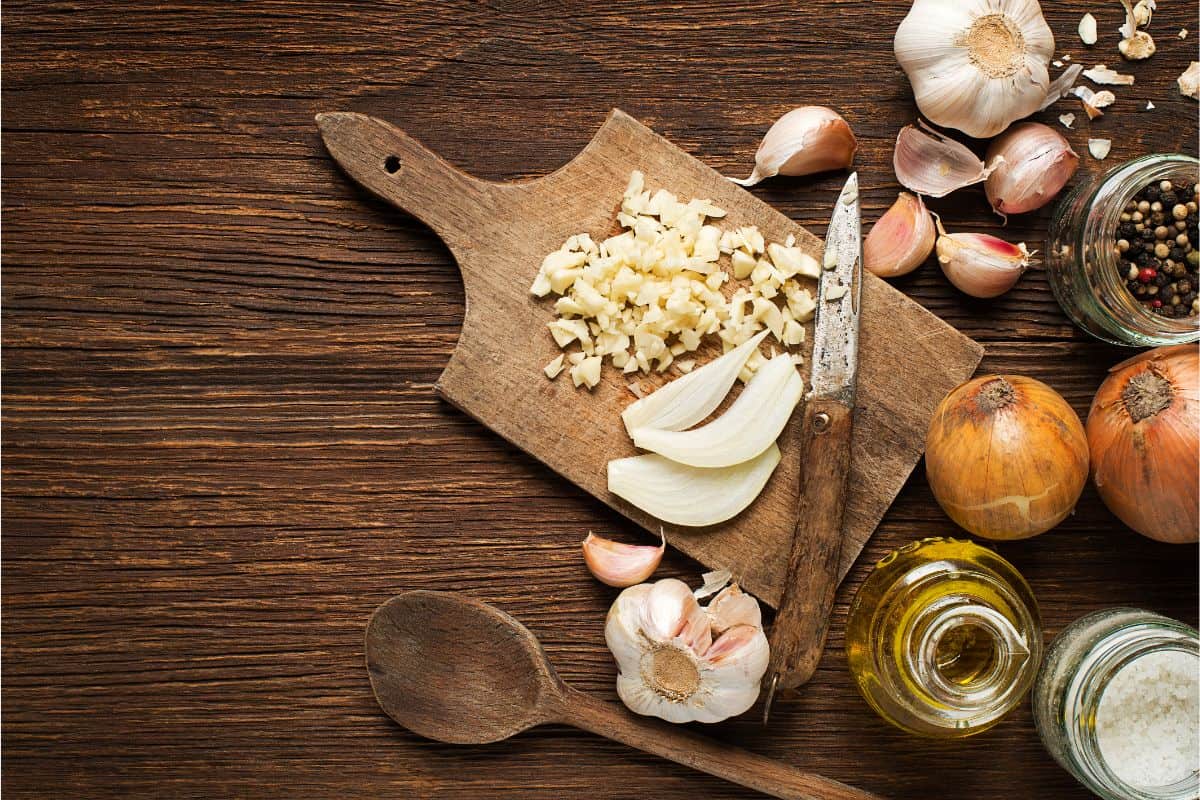
The most important thing to know when exploring the recipes you can feed your dog is the ingredients you should avoid at all costs and why.
Plenty of common ingredients feature heavily in recipes, designed to make our food more flavorful and appealing to human taste buds.
However, some of these ingredients can be extremely dangerous for dogs. Below are the ingredients that you should avoid using if you want to feed something to your pet.
Garlic
A very common ingredient in the bases of most sauces, soups, and chili, garlic is very dangerous for dogs to consume. Garlic is toxic to dogs; it can cause your dog’s red blood cell count to decrease and lead to hemolytic anemia.
Even when consumed in small amounts, garlic can cause painful gastrointestinal problems for your dog. Painful gas, vomiting, and dehydration are common symptoms of garlic ingestion.
Garlic powder should also be avoided as it has been known to cause severe reactions in many dogs. In addition to garlic and garlic powder, make sure your dog stays clear of garlic salt and minced garlic as well.
Onions
Onions belong to the same family as garlic and are equally dangerous for dogs to ingest.
Onions contain an N-propyl disulfide oxidant; while this is perfectly fine for humans to consume, dogs (and cats) have a much lower tolerance for oxidative damage to their red blood cells.
Dogs, in particular, have more areas on their red blood cells for the N-propyl disulfide to attach to. This oxidant can cause your dog’s red blood cells to break down, resulting in anemia.
A dog that has consumed too many onions will display symptoms such as lethargy and weakness; they may also experience fainting spells.
Dogs should also avoid consuming any onion powder because it can be just as harmful. The typical dose of onion powder considered toxic for dogs is 15 to 30 grams per kilogram of the dog’s weight, which is about .5% of their total body weight.
Bay Leaf
Even a single bay leaf is toxic for dogs. They contain eugenol and other toxic essential oils that can harm your dog. Some homemade soup is made with a bay leaf or two.
According to the ASPCA, dogs that consume bay leaves may experience diarrhea and vomiting. If they swallow a whole bay leaf, it can cause an obstruction. If your dog has eaten a bay leaf, you should consult with your veterinarian about what to do.
Salt And Flavorings
As we know, too much salt isn’t good for anyone. In the same way that we regulate the amount of salt we consume in our diets, it is even more important to regulate the salt in your dog’s diet.
In high doses, salt can be poisonous for your dog and cause issues such as obesity, seizures, and organ damage, all of which can be very painful for your dog.
The flavorings in some foods can have even worse effects on your dog’s health. MSG is the worst offender, causing damage to your dog’s digestive tract, as well as causing nerve and brain damage in dogs.
The biggest issue with MSG is its stealthy appearance in food. Due to how it is added to food products, it does not have to be specifically listed in the ingredients.
Instead, it can simply be grouped under natural and artificial flavorings. The risk of MSG in food products renders them risky at best for your four-legged friend and fatal at worst.
Flavorings create the biggest argument against giving dogs any food designed for human consumption that is not 100% homemade. The side effects of consuming this common flavoring are extreme and brutal for both you and your dog to experience.
If you were planning on giving your dog store-bought chicken noodle soup, it would be wise to keep it for yourself to enjoy instead.
Preservatives
While there are many arguments that preservatives aren’t good for anyone to consume, they can be even worse for your pup.
Natural preservatives, excluding salt, are usually fine for humans and dogs to consume. In fact, many canned dog foods will actually contain natural preservatives to boost the product’s shelf life.
However, many artificial preservatives can cause issues with your dog’s digestive system and organs. It is best to steer clear of all preservatives, if possible, with your dog’s food, both homemade and bought from a pet store.
Fats and MSG
Many soups contain a high amount of fat, which can result in weight gain and obesity for your dog. When your dog gets too much fat, it can also ultimately cause the pancreas to become inflamed. And there is MSG. This stands for monosodium glutamate, and it can harm your dog’s kidneys and liver.
Chicken Bones
While raw bones are often fine to give to your four-legged friend, provided that they are big enough to avoid the risk of choking, cooked bones should be avoided regardless of their size.
Bones become brittle when cooked, making them prone to splintering when your dog is chewing on them.
Those splinters can cause your dog to choke, or they can pierce their throat, pipe, or internal organs. Even without the risk of splintering, chicken bones tend to be quite small and are the perfect size to lodge in your puppy’s throat.
Make sure all bones have been removed from the soup before giving it to your dog if you are making it from scratch.
If you are concerned that your dog has ingested any of the ingredients listed above and they are displaying any of the symptoms mentioned, you should seek medical assistance as soon as possible.
Can Dogs Have Chicken Bone Broth?
If you can’t find a good option for canned chicken noodle soup, you can give your dog chicken bone broth as a substitute. It can be given to them when they are sick or as a preventative method when they are well. Chicken bone broth is nutritious and packed full of essential vitamins and minerals. It is also a good source of collagen, protein, glucosamine, and glycine.
Store-Bought Soup
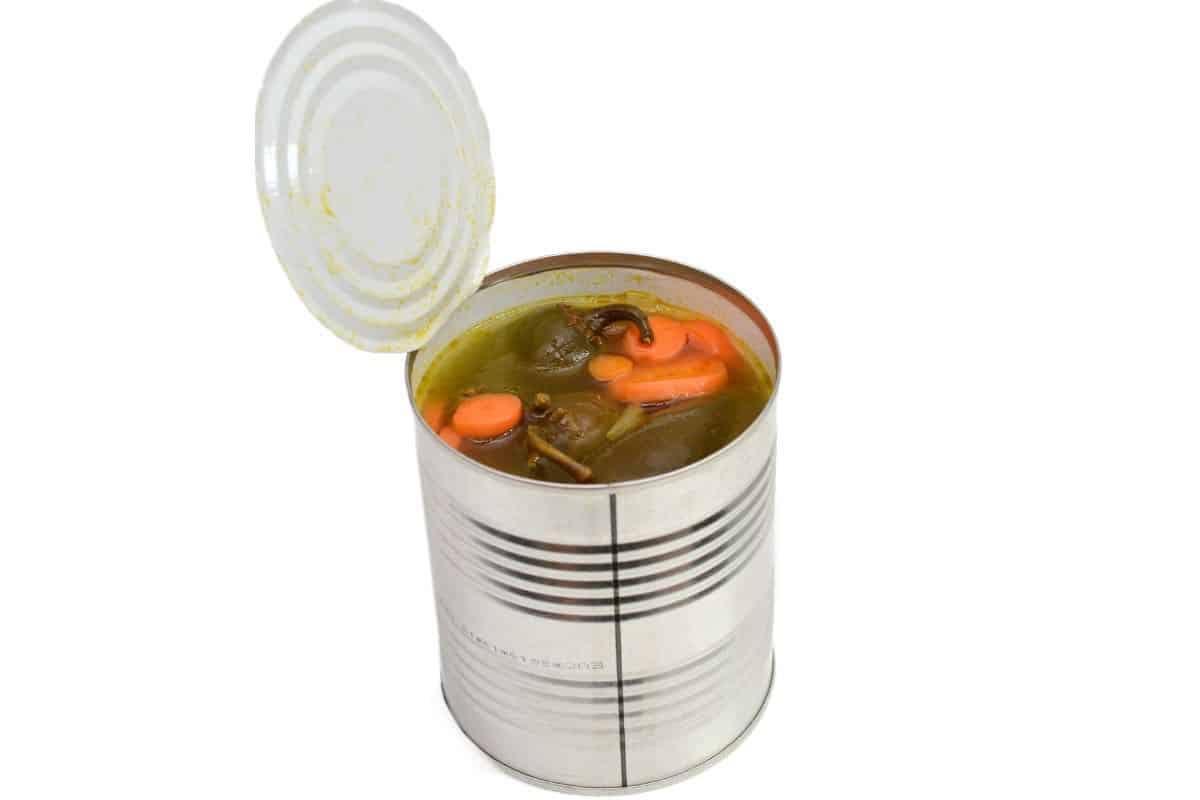
As mentioned above, many of the ingredients we add to chicken noodle soup to make it taste appealing are extremely harmful to dogs. This also applies to store-bought soups.
If you are looking for a store-bought chicken noodle soup for your dog, you must read the ingredients list thoroughly to ensure that there is nothing harmful to your dog in the soup.
However, almost all store-bought soups will contain high levels of preservatives, flavorings, and salt. It is unlikely that you will be able to find one that is safe for your dog.
Canned Chicken Noodle Soup
Canned soups are full of preservatives and feature high levels of salt and MSG to increase the product’s shelf life. These ingredients make canned soups fundamentally unsuitable for giving to your dog.
While it may be possible to find a canned chicken noodle soup that does not contain onion or garlic, almost all canned products contain high levels of salt, preservatives, and flavorings.
Dry Packaged Soup
Dry packaged soups include cup soups and instant soups where powdered soup mix is combined with water; it can also include dry stock mixes.
These convenient packs of dry soup mix contain high levels of salt, flavorings, and preservatives that render them dangerous for consumption by dogs.
To make matters worse, the dry packaged soup contains very few ingredients that would be safe for your dog to consume such as chicken (5%) and leek (3%), which is also dangerous for dogs to ingest.
In short, neither dry soup mixes nor canned soups from stores are suitable options for your dog.
Canned Chicken
We have covered all the soups but what about canned chicken? You can give your dog a small amount of canned chicken but never for a meal. It should only be given as a small treat. This applies to canned chicken and all other canned products because they contain a high amount of sodium.
Homemade Chicken Noodle Soup
With store-bought soups unsuitable for dogs, is homemade soup any better? Well, it can be.
The chicken noodle soup you make for your family to enjoy when they are sick or to use up leftovers is also likely unsuitable for your dog to consume. As a general rule of thumb, if the soup tastes good to you, it is probably bad for your dog.
However, there is still hope for your pup. With a few simple alterations, you can make a delicious chicken noodle soup specifically for your dog.
Now that we know which ingredients are bad for your dog and the negative effects they can have on their health and well-being, we know what to leave out of our recipe.
The best chicken noodle soup recipe to follow for when your dog has an upset stomach includes only three ingredients:
- Plain cooked chicken breast
- Carrots
- Water
The best part of this recipe is that you can enjoy it alongside your furry friend (don’t worry, you can season your portion in your own bowl!).
Simply boil the chicken meat and carrots in the water. Remove any fat and skin as needed, including any starchy foam that forms on the surface. If you think the soup is repulsive and far too bland, it is perfect for your dog!
Once the soup has simmered for a couple of hours, remove it from the heat and allow it to cool to barely warm before serving.
If your pup is still suffering from an upset stomach and you are unsure whether they will be able to keep the soup down, remove the chicken meat from the soup you serve, leaving just the chicken broth and well-cooked carrots. You could also mix in some of your dog’s favorite kibble and allow it to soften before serving.
If your dog can keep this down, their next meal of homemade chicken soup can also contain the cooked meat.
Altering Your Favorite Recipe
If you prefer to take a tried and trusted chicken noodle soup recipe you make for your family and remove the harmful ingredients to your dog, that is fine.
However, it is important to remember that the pinches of salt and garlic powder that you would barely even taste could cause significant discomfort and illness for your dog.
You must remain vigilant in your cooking process and ensure you do not season the homemade chicken soup absentmindedly.
If you realize that you might have accidentally added an ingredient that may cause harm to your dog, do not feed it to your pup.
If you make chicken noodle soup for your dog by altering a common recipe and your dog begins to show signs of ingesting toxic ingredients, it is vital that you seek medical advice or attention for your pup immediately. Mistakes happen, and your dog will likely make a full recovery from its symptoms.
Finally, you may be tempted to add some packaged chicken broth to the soup for your dog. This can be absolutely fine as long as you can guarantee no harmful ingredients can be found within the chicken broth. For the reasons mentioned above, this can be difficult to do with store-bought stocks, so it is safer to make your own chicken broth in most cases.
However, if you have made your own homemade chicken broth and can be sure that there are no traces of onion, garlic, or other harmful ingredients, it can be a tasty addition to your pup’s chicken noodle soup.
Final Thoughts
In conclusion, dogs can eat chicken noodle soup as long as it is prepared for their specific dietary needs. This generally means omitting any seasoning, preservatives, or harmful vegetables such as leeks, onions, and garlic.
However, if your dog has additional allergies, there may be more extensive ingredients that should be avoided. If your dog has known allergies, it is important to consult its veterinarian on whether or not you should make chicken noodle soup for your pup.
Store-bought chicken noodle soup and other pre-prepared food designed for human consumption should be avoided when feeding your dog due to the high levels of toxic ingredients.
Even if the listed ingredients do not contain any known toxic ingredients, they may be hidden under the umbrella of natural and artificial ingredients.
In short, it is important to check the ingredients of the food you give to your dogs and seek proper medical advice if your dog displays signs and symptoms of having consumed any of the harmful ingredients mentioned above.

